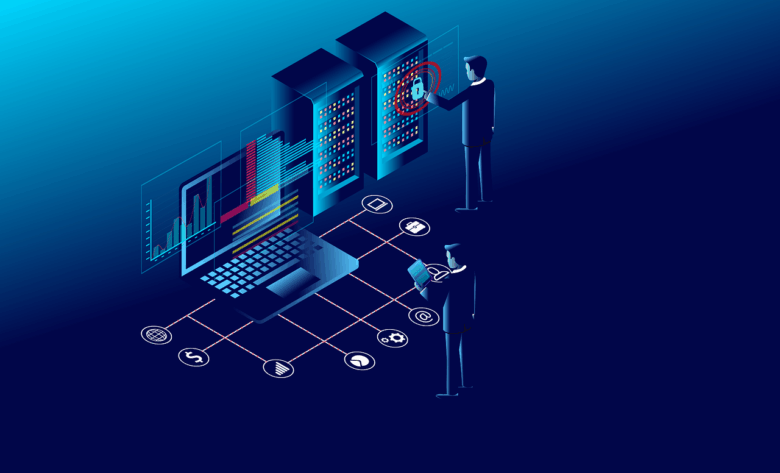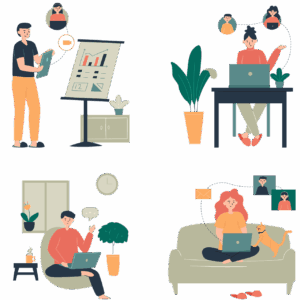As remote work becomes the standard for a growing number of industries, businesses are turning to artificial intelligence (AI) to streamline workflows, boost productivity, and enhance team collaboration. In 2025, the integration of AI tools into remote work environments is no longer optional—it’s essential for staying competitive.
How AI Is Transforming Remote Collaboration
1. Smart Communication Tools
AI-powered communication platforms, like Microsoft Teams and Zoom, now come equipped with real-time transcription, translation, and meeting summarization features. These tools help eliminate language barriers and ensure that all participants remain aligned, regardless of time zone or native language.
2. AI-Driven Project Management
Tools like ClickUp and Asana have integrated AI to assist with task prioritization, automated scheduling, and progress prediction. These systems help remote teams stay organized and meet deadlines without micromanagement.
3. Virtual AI Assistants
Virtual assistants powered by AI, such as Notion AI or Google Duet, can summarize documents, draft emails, and even schedule meetings. This reduces the administrative burden on team members, allowing them to focus on more strategic tasks.
4. Enhanced Brainstorming with Generative AI
Platforms like ChatGPT and other generative AI tools allow for quick idea generation, content drafting, and real-time support during brainstorming sessions—making asynchronous collaboration far more effective.
Boosting Productivity Through AI Automation
AI helps automate repetitive tasks such as data entry, reporting, and email responses. This not only saves time but also minimizes errors, ensuring higher quality and consistency in output.
Additionally, AI algorithms can analyze employee work patterns and suggest productivity improvements, including optimal work hours, break times, or even task delegation based on performance data.
Challenges and Ethical Considerations
Despite its advantages, the use of AI in remote work raises questions about privacy, bias, and over-dependence on automation. Companies must ensure that AI tools are used responsibly, with clear guidelines and human oversight in place.
Future Outlook
By 2025 and beyond, AI will play an even more central role in shaping the remote workplace. Advances in natural language processing, sentiment analysis, and predictive analytics will make virtual collaboration as seamless and intuitive as in-person teamwork.
AI is not replacing human collaboration—it’s enhancing it. By taking over routine tasks and offering intelligent insights, AI enables remote teams to focus on creativity, strategy, and innovation. The organizations that embrace these tools thoughtfully will be the ones that thrive in the remote-first future.
SEO Keywords:
AI in remote work, remote collaboration tools, productivity with AI, AI tools for remote teams, future of work 2025, artificial intelligence in remote jobs




